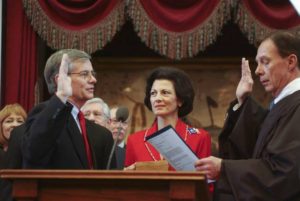Rick Perry reportedly is set to quit his job as secretary of energy, returning to the private sector, perhaps in Texas, where he served as the state’s longest-tenured governor before joining the Donald Trump administration.
Some in the media are making a bit of noise about Perry’s pending departure, linking him to the growing scandal involving Trump’s relationship with Ukraine and his solicitation of the Ukrainian president to assist in Trump’s bid for re-election.
Actually, Perry has been reported ready to leave D.C. for several weeks.
How has he done as energy secretary? I wish he would have devoted as much, um, energy to alternative power sources as he did when he served as Texas governor from 2000 to 2014. Indeed, Texas emerged as a leader in wind-power technology during Perry’s stint as governor.
He ran for the Republican nomination for president twice, in 2012 and 2016. Perry once called Donald Trump a “cancer on conservatism,” then swallowed his criticism when the president nominated him to become energy secretary.
Perhaps most ironic is that Perry — during a presidential candidate joint appearance in 2012 — became the source of the infamous “oops” quote when he couldn’t name the third agency he would eliminate were he elected president; that agency was the Department of Energy.
Whatever … Perry became an advocate for fossil fuels when he took the Cabinet post. Yes, he also pitched alternative energy development, but with hardly any of the verve he did while in Austin.
I haven’t a clue whether the Ukraine scandal is going to swallow Perry along with Trump and possibly others within the administration. The president reportedly told a GOP audience that Perry asked him to call Ukrainian President Volodymyr Zellenskiy, which has produced much of the evidence that Trump has violated his oath of office by soliciting the Ukrainian for re-election help along with dirt on former VP Joe Biden.
That part of the saga will play out in due course.
As for Secretary Perry’s record at the Department of Energy?
Eh …







